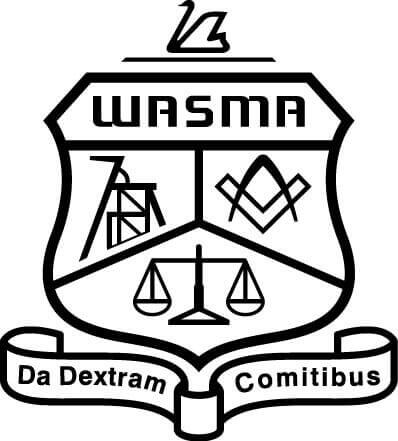Associate Professor Bre-Anne Sainsbury isn’t fazed by the recent industry challenges, including suggestions about the end of the Australian mining boom.
She argues that we’re never going to stop needing minerals for technology or the development of infrastructure for our growing urban sprawl.
Associate Professor Sainsbury is the founding director of a new stream of engineering courses at Monash University focused on the resources sector. The courses offered include Renewable Energy Engineering, Oil and Gas Engineering and Geological Engineering. These will run parallel alongside the existing Mining Engineering degree that is sponsored by MMG and Newcrest.
Each of the four courses is four years long. As with all Bachelor of Engineering courses at Monash University, resources students will undertake a common first year, and then a common resources engineering year before choosing a specialisation (renewable energy, oil and gas, mining or geological) in their third year. Having practised in each of these four areas of resources engineering during her career (both within Australia and overseas), Bre-Anne is uniquely qualified to ensure the seamless relevance of the curriculum between each of the degrees. Studying resources engineering at Monash University also provides students with unique access to jobs within the boom infrastructure and renewable energy markets around Victoria, the oil and gas industry that is centred in Gippsland and the fact that Melbourne is the third largest mining centre in the world, behind only London and Toronto.
Yet what sets the resources stream apart from other engineering courses is the focus on partnerships with industry and their commitment to experiential learning. Bre-Anne says that industry has been invited to come in and help develop the curriculum and facilitate field-trips. Moving forward, the university will ask industry to provide key ‘education partners’ within units that have been identified as requiring a ‘hands-on’ approach to learning. By bringing practicing industry professionals in to the university to help deliver content and experiences, the content that is taught every year will be up to date. This will ensure that graduates’ skills are relevant. Monash is engaging with industry to make sure that its students will be at the forefront of technology.
The new streams will also develop a new way of teaching by crossing all engineering departments within Monash. Course content will be delivered between different engineering departments and even inter-faculty, as the resources stream draws a lot on geoscience for the delivery of their content. This kind of collaboration hasn’t happened in the past in universities.
Pioneering a new course structure aligns with the university’s desire to produce innovative resources professionals for tomorrow’s world.
Bre-Anne is also excited about the unique, multi-disciplinary nature of the courses and the re-commencement of an Undergraduate Geological Engineering Degree within the Australian market that has been lacking since the closure of the RMIT program. Geological Engineering graduates will have completed specialised studies in Geological Engineering throughout the four years of their studies, as well as developing their fundamental engineering competencies. A typical enrolment profile within the geological engineering stream is provided below:
| YEAR 1 | YEAR 2 | YEAR 3 | YEAR 4 |
|---|---|---|---|
| ENG1001 Engineering design: lighter, faster, stronger |
CIV2206 Mechanics of Solids |
MNE3020 Resource Estimation |
MNE4050 Research Project I |
| ENG1060 Computing for engineers |
MNE2030 Project, Risk and Safety Management |
MNE3040 Surface Mining Systems |
RSE4111 Numerical Modelling |
| ENG1005 Mathematics for engineering |
EAE2511 The Deep Earth |
MNE3050 Underground Mining Systems |
ENE3048 Energy Environment |
| EAE1011 Earth, Atmosphere and Environment I |
MEC2404 Mechanics of Fluids |
ENE3608 Environmental Impact Statements |
EAE3591 Geophysics |
| ENG1002 Engineering design: cleaner, safer, smarter |
CIV2242 Geomechanics |
MNE3010 Rock Mechanics |
MNE4060 Research Project II |
| ENG1003 Engineering mobile apps |
MNE2010 Fixed Plant Engineering |
EAE3562 Ore Deposit Geology |
MNE4020 Design and Feasibility Project |
| ENG1021 Spatial Communication |
ENG2005 Advanced Mathematics |
RSE3242 Geothermal Energy |
RSE4231 Unconventional Resources |
| MNE1010 Natural Resources Engineering |
EAE2522 Sediments and Basins |
RSE3132 Reservoir Engineering |
RSE4112 Advanced Rock Mechanics |
Alongside this, graduates will have also completed the Resources Engineering Leadership Program, which equips students with a skill set to enable them to enter into supervisor positions within the resources industry with confidence. Topics covered in the Leadership Program include change management, emotional intelligence, delegation, etc. A tailored leadership program is required for resources sector graduates due to the unique position of authority and autonomy in a sometimes isolated situation that they encounter.
The first intake of students into the new streams will occur in 2017, and staff for the program are primarily coming from industry. Monash is trying to ensure that its students are learning a practical skill set so that they’re job ready – a quality Bre-Anne believes the industry is looking for.

The history of the Western Australian School of Mines Alumni (WASMA) reflects the ups and downs of the Western Australian School of Mines (WASM) and the role it has played in supporting graduates in a range of activities and events. It also describes the important role that graduates have played in ensuring WASM remains in Kalgoorlie. Learn more.
